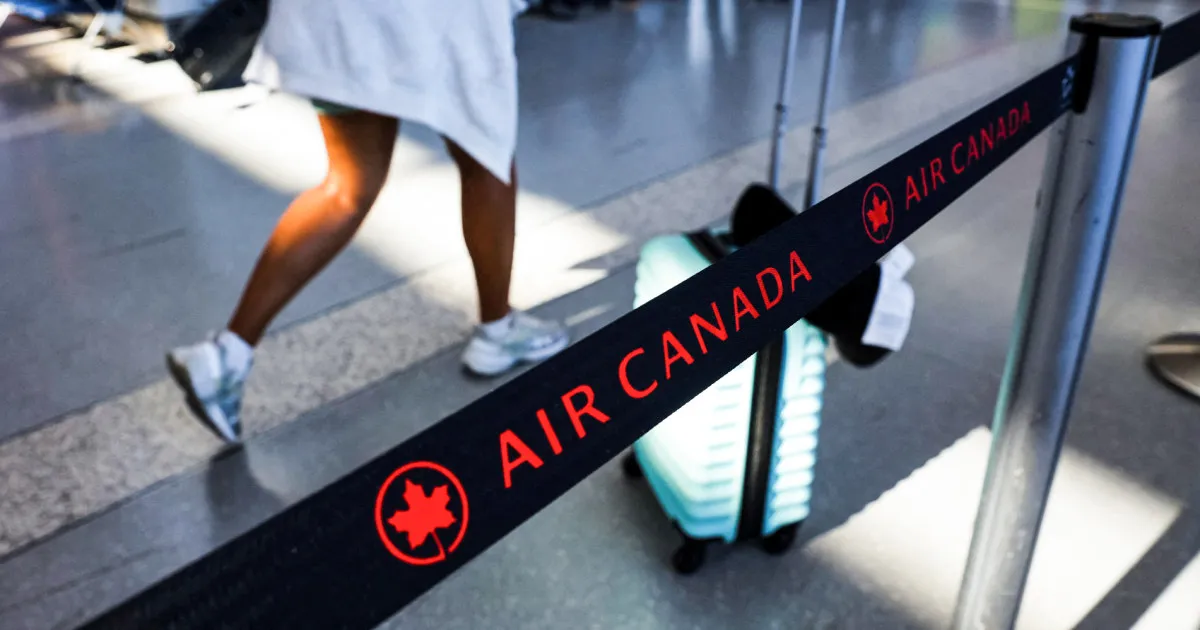
On Saturday morning, Air Canada suspended all operations as over 10,000 flight attendants walked off the job due to ongoing pay and scheduling disputes. This unprecedented action prompted the Canadian government to intervene, highlighting the significant impact on travelers during the peak summer season.
In response to the crisis, Jobs and Families Minister Patty Hajdu directed the Canada Industrial Relations Board to impose binding arbitration. This measure extends the existing contract until a new agreement is reached, aiming to mitigate the disruptions caused by canceled flights. In a statement, Hajdu emphasized the importance of this decision, stating, “This will help ensure that hundreds of thousands of Canadians and visitors to our country are not impacted because of canceled flights.”
The strike has already wreaked havoc on travel plans worldwide, as Air Canada is the country’s largest airline and flag carrier. The airline estimates that with roughly 700 daily flights grounded, approximately 130,000 customers will be affected each day the strike continues. Minister Hajdu also warned of potential repercussions for the Canadian economy, noting that Air Canada transports over 40% of the nation’s critical goods, including pharmaceuticals and organ tissue.
Currently, it remains unclear how long the strike will last or when an agreement may be reached. Mark Nasr, Air Canada's Chief Operating Officer, cautioned that even after a deal is struck, it could take up to a week to fully resume operations.
Wesley Lesosky, leader of the Air Canada Component of the Canadian Union of Public Employees (CUPE), accused the government of siding with the airline and undermining workers' rights. Demonstrations took place outside Toronto Pearson International Airport, where protestors shouted, “Say it loud, say it proud. Unpaid work is not allowed!”
For passengers like Shelley Brown, who found herself stranded in New York City after her Air Canada flight was canceled, the timing of the strike is unfortunate. She expressed empathy for the flight attendants, hoping for a swift resolution. Air Canada has urged customers to avoid going to the airport unless they possess a confirmed ticket on another airline, noting that flights operated by Air Canada Express partners, Jazz and PAL airlines, remain unaffected.
Travelers affected by the strike have several options. Customers who booked flights on or before August 15 for travel on Saturday or Sunday are eligible for a full refund of the unused portion of their ticket, regardless of fare type. This can be processed through the airline’s website or mobile app. Alternatively, travelers may choose to receive travel credits for future bookings.
For those with refundable tickets, a full refund can be requested without fees. Nonrefundable fares can be converted into credits for future travel, providing flexibility during this challenging time.
If customers choose not to request a refund, Air Canada has stated that they will attempt to rebook affected passengers, potentially including flights with other carriers. However, the airline cautioned that due to limited availability during the busy summer season, finding alternative flights within an acceptable timeframe might be difficult. Passengers can also rebook their flights for dates between August 21 and September 12 at no additional cost.
As a member of the Star Alliance network, which includes 26 member airlines such as United and Lufthansa, travelers on partner airlines may also experience disruptions. United Airlines has issued a statement saying they are “working with customers to get them to their destinations” and has implemented a travel waiver to provide flexibility for affected travelers.
The Port Authority of New York and New Jersey has expressed its readiness to assist travelers and minimize disruptions. They confirmed that airport staff would be on-site to support passengers and that they are coordinating closely with Air Canada and terminal partners to ensure necessary resources are available. The agency advised travelers to check their flight status with Air Canada before heading to the airport and to allow extra time for travel.
As the situation evolves, the U.S. Department of Transportation has yet to issue an official statement regarding Air Canada’s suspended operations and has not responded to requests for comment.